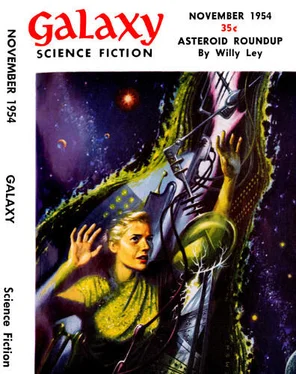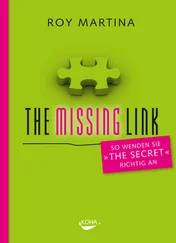Roy Hutchins - The Nostalgia Gene
Здесь есть возможность читать онлайн «Roy Hutchins - The Nostalgia Gene» весь текст электронной книги совершенно бесплатно (целиком полную версию без сокращений). В некоторых случаях можно слушать аудио, скачать через торрент в формате fb2 и присутствует краткое содержание. Год выпуска: 1954, Жанр: Фантастика и фэнтези, на английском языке. Описание произведения, (предисловие) а так же отзывы посетителей доступны на портале библиотеки ЛибКат.
- Название:The Nostalgia Gene
- Автор:
- Жанр:
- Год:1954
- ISBN:нет данных
- Рейтинг книги:3 / 5. Голосов: 1
-
Избранное:Добавить в избранное
- Отзывы:
-
Ваша оценка:
- 60
- 1
- 2
- 3
- 4
- 5
The Nostalgia Gene: краткое содержание, описание и аннотация
Предлагаем к чтению аннотацию, описание, краткое содержание или предисловие (зависит от того, что написал сам автор книги «The Nostalgia Gene»). Если вы не нашли необходимую информацию о книге — напишите в комментариях, мы постараемся отыскать её.
there is only one person to blame—Edgar’s grandmother!
The Nostalgia Gene — читать онлайн бесплатно полную книгу (весь текст) целиком
Ниже представлен текст книги, разбитый по страницам. Система сохранения места последней прочитанной страницы, позволяет с удобством читать онлайн бесплатно книгу «The Nostalgia Gene», без необходимости каждый раз заново искать на чём Вы остановились. Поставьте закладку, и сможете в любой момент перейти на страницу, на которой закончили чтение.
Интервал:
Закладка:
On a day in 1935, Edgar found himself pondering with a fierce intentness he had not used since 1959, when he built the time machine. Today, August fifth, was his 66th birthday—but it was also the day he was born.
It was impossible not to wonder. Forty-two years ago (or twenty-four from now), he had not bothered to think about possible consequences, so strong and simple had been his urge to go back. But today—would he, the father of one and grandfather of three, be wiped out the instant Edgar Evans was born? Or would no baby of that name be born in the tiny Oklahoma town?
He had been born in the morning and when this particular morning passed like any other, Edgar felt considerably better. Cogito, ergo sum , he thought. "I think, therefore I am—a comforting philosophy. But what about the baby?"
So Edgar, nervous but understandably curious, sent a discreetly worded wire and learned before long that he had indeed been born on schedule. The more he thought about it, the less reason he could see why it should be otherwise. A baby born in another part of the country had been given the same name as his. There was certainly no traceable relationship. And nearly everyone has a namesake somewhere.
Not wishing to be institutionalized, Edgar had never hinted to anyone, not even Marta, the secret of his past. He had invented a convenient and plausible history, but used it only when necessary, and then sparingly. But now he was thinking of his granddaughter, Susan.
Susan carried the gene. At five, she insisted on dressing her dolls in the costumes of forty years ago. She would be 29 and thoroughly unhappy by the time the young Edgar perfected and used his time machine.
So Edgar wrote a letter, sealed it and gave it to his lawyers with instructions that it was to be given to Susan on a certain date in 1959, provided she was still unmarried.
Edgar passed away three years later with a well-bred smile on his face, befitting the first man who ever cheated time. His last statement, phrased as considerately as ever, was the hope that he wasn’t causing trouble by dying.
Susan, his granddaughter, grew into a pleasingly plump young woman in an age where the ideal seemed to be total emaciation. She was not only single but disillusioned and despairing when the lawyers looked her up and gave her Edgar’s letter.
A good part of what Edgar had written sounded like confused mysticism, warnings about upsetting the future and the like, but his instructions were specific enough and she read them as if they were the lost book of Revelations .
By the next day, she had flown from San Francisco to New York and gained entry to young Edgar Evans' room by telling his landlady she was a distant relative. She disconnected the scrambler from the time machine and reset the controls to put herself back in 1891. In her haste, she forgot some of Edgar’s instructions, with the result that she landed not fittingly costumed, but bare as a bacchante, in the room of a handsome young man from Louisiana.
The young man, whose name was Hare, was too startled to be anything but a Southern gentleman at the time. In less than a month, however, he took her back to Baton Rouge for inspection by his family and, that ordeal successfully weathered, Susan found herself with a husband.
There is no need to follow all of Susan’s life, which was happy, sad, unique and filled with minor tragedies and triumphs, like any other life. But Susan had four sons and gave the gene to each of them, and their children received it in turn. Before she had thought it necessary to pass the secret of the machine to Edgar’s great-great-grandchildren, Susan died, so the machine was not available to them.
Not that it mattered—knowledge was available, for young Andover Hare had studied electronics at M. I. T. In 1962, he built his own time machine, which was a considerable improvement over Edgar’s, since it could select place as well as time. Andover contacted his brothers, sisters and cousins, helped them make their arrangements and passed them through to the times they selected. Being a considerate man, he allowed several relatives by marriage to go along on this mass temporal migration.
They did not restrict themselves to the '90s. Some went back to the 1700s, two to the Italian Renaissance, and one adventurous cousin clear to the Second Crusade. Andover himself decided he would like to know Shakespeare and Ben Jonson. He was the last one through the machine and he left a small, efficient detonator connected to it. Andover had Edgar’s gene, but not his compunctions.
Yes, we owe a lot to Edgar Evans. When Edgar was a grave and unchubby one-year-old, pulling himself up on the furniture, Gone With the Wind hit the populace right in the middle of their worries, vague fears and faintly stirring desires to get out of their increasingly complex world. The year was 1936, a year that also saw a period piece movie that was one of the first in the inevitable deluge— The Great Ziegfeld drew, as customers, many of the bearers of Edgar’s gene, enough to make a profit-conscious Hollywood see mint-green.
The year neighbors searched the wreckage of Edgar’s home to pull him from under the body of his mother, hunched in a last protective gesture, was the year that saw American history searched frantically for movie material. It was '39 and Dodge City and Union Pacific helped thousands of Edgar’s descendants forget momentarily the distant rumble of war. Historical novels were also helping to glamorize the past.
By the time Edgar had graduated from school, been rejected by the Army and worked for a time, the cold war was well advanced. Three generations were mind-sick with tensions and fears and doubts—heart-sick with the impossible wish to roll back the years to times of peaceful, neighborly, unfrenzied human living.
Edgar did.
And the next time, in 1959, Susan went back. For most of us, 1959 came only once, the year of the crisis when the missiles had already been launched from both sides before the astonishing "thieves' agreement" was reached and the missiles were aimed into the sea.
There could be nothing but relief for a few months after that, but then the play on nerves began again, the tensions began their unbearable rise.
In 1962, Susan’s grandchildren were funneled like sacks of coal through Andover Hare’s machine. There were eighteen of them and a group of their descendants built another machine later the same year. The following March, another group disappeared—a much larger one this time. They spread the gene so widely that most of us bear it today.
It was inevitable that we carry the seed of that desperate desire to escape our own troubled times. And the urge makes living under this doubly grinding pressure more anguished every day.
How many times this week have you read or heard a piece of news and wondered how much longer before the final, fatal mushrooms flare? How many times has a video show, a movie, or even just a snapshot brought the swift wish that you could be back there? How many times have the "good old days" crept into your conversation, your thoughts?
As this account began with Edgar Evans, so it shall end with Benjamin Reeves. Not yet, but soon—it must be soon now.
Like all truly wise men, Benjamin Reeves is a modest man. He’s tall, stooped a little, and his limbs are attached in that special loose way that makes a man amble rather than walk, sprawl rather than sit. At 50-odd, he looks much more like a friendly janitor than a respected research engineer.
And the gene is particularly dominant in Benjamin.
For eighteen years, he labored in the military vineyard, like so many other scientists, designing computers and control systems for the engineering section of a huge company, and finally heading up a study group in the Dream Department. He liked that job. The dream boys were the ones who sat around and thought about entirely new ways of doing things. Compared to designing, it was like the difference between the creative excitement of composing music and the drudgery of arranging it.
Читать дальшеИнтервал:
Закладка:
Похожие книги на «The Nostalgia Gene»
Представляем Вашему вниманию похожие книги на «The Nostalgia Gene» списком для выбора. Мы отобрали схожую по названию и смыслу литературу в надежде предоставить читателям больше вариантов отыскать новые, интересные, ещё непрочитанные произведения.
Обсуждение, отзывы о книге «The Nostalgia Gene» и просто собственные мнения читателей. Оставьте ваши комментарии, напишите, что Вы думаете о произведении, его смысле или главных героях. Укажите что конкретно понравилось, а что нет, и почему Вы так считаете.











